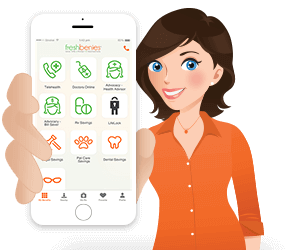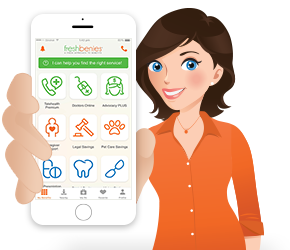CATARACTS: 6 QUESTIONS ANSWERED
Have you spotted a senior citizen rockin’ a pair of big black cataract sunglasses? Before this article, that was about the extent of my cataract expertise. Well, turns out it’s not far off: according to Statistic Brain, 50% of Americans over the age of 80 have cataracts and Medicare spends $3.4 billion each year treating the disease!
Since 3 million people have cataract surgery each year, there’s a 50% chance you’ll get them if you live past 80 years, and August is Cataract Awareness Month, we thought it would be good to do a little education. Don’t worry…we’ll make it fun!
To help get a better “view” on the topic, we reached out to our friends at VSP Direct for their expertise in answering 6 important questions. Here we go…
1) What is a Cataract?
According to VSP Direct, “Cataracts are medical conditions where the vision becomes increasingly blurred as the lens in the eye begins to cloud. There are several different types of cataracts – all are caused by different factors and can come at different times in life.”
If you’re not getting a picture of what a cataract looks like on your side, let me help: think about the last zombie movie you saw where the “ex-person’s” eye is blue-ish and clouded over. Get it?
The miracle of sight has fascinated scientists for years, but for all the research there are still a lot of questions. While many eye conditions are a mystery, there is a good deal of information and treatments for Cataracts.
2) What causes a Cataract?
Your eyes are like a camera lens that focuses light to give you clear vision of the objects around you.
A human eye lens is much more fragile – you can’t just throw it in a camera bag because it’s made of water and protein that has to be arranged in a very precise way to give you optimal vision.
VSP Direct notes that, as we age, proteins form together causing clouding in the lens. The longer you wait, the cloudier it gets. There are other things that can cause cataracts:
*excessive exposure to sunlight *family history
*smoking *obesity *previous eye surgery
*diabetes *eye injuries *excessive drinking (alcohol, that is)
This list looks pretty familiar – many items are causes of other diseases and health problems, so best to steer clear for many reasons!
3) How do I know when I have a Cataract?
If you aren’t paying close attention, a cataract can go unnoticed. You might think you have allergies or some sort of eye irritation. VSP Direct gives us some key signs to look for:
1. Halo-Like Glow
You may start to see halos, especially around things like bright lights or glares from the sun. No, it’s not angels.
2. Contrast Sensitivity
During night driving, you’ll notice that objects have a peculiar halo-like glow around them. You’ll also start to notice that it’s much harder to differentiate dark cars from the night’s dark background. Um, as the driver, that’s not good!
3. Loss of Depth Perception
If you find that it’s hard to discern how far away something is or if you find that you need more light than normal to read a book or accomplish a task, you may have a cataract. So that safety warning on your side-view mirror might change to: “Objects in the mirror are A LOT closer OR FURTHER AWAY than they appear.” Again, as the driver…not good!
4) How do I prevent a Cataract?
Obviously, you should try to avoid the items listed in #2! In addition, VSP Direct advises, “Nutrition plays a key role in prevention, as well. Antioxidants in vegetables and fruits can be powerful preventative measures.” Your mom was right…eat your dang veggies, people! Don’t make me tell you again. Oops, sorry…I slipped into “mom mode” there for a minute!
Another tip from VSP Direct: wear proper eye protection. According to the Mayo Clinic, “When you're choosing sunglasses, look for UV-protection details on product labels. Choose sunglasses that block 99 to 100% of both UVA and UVB rays. Skip sunglasses that neglect to offer details about their UV protection. Keep in mind that the color and degree of darkness sunglasses provide have nothing to do with the sunglasses' ability to block UV rays. Also, opt for wraparound sunglasses or close-fitting sunglasses with wide lenses that protect your eyes from every angle.” Those $1 store sunglasses are probably not going to cut it. You could probably just buy the cataract sunglasses now – seems like that might work?
5) What do I do about it?
First, and most importantly, get the right diagnosis from your eye doctor. If they suggest surgery, it will likely be performed as an outpatient procedure and won’t require an overnight hospital stay.
VSP Direct helps explain the surgery and steps involved:
1. You’ll be given eye drops to prepare your eyes for the surgery, antibiotics to prevent inflammation and swelling, and a local anesthetic.
2. The surgeon will have you look up into a light and will start the surgery.
3. They’ll use an operating microscope to make a very small incision in the surface of your eye. An ultrasound probe is inserted into the eye and vibrates to dissolve the clouded lens. The tiny pieces are then suctioned out through the probe.
4. Now that the cataract is gone, your eye's cloudy natural lens is replaced with a clear artificial lens implant. (Don’t go telling people you’re “getting implants” for cryin’ out loud!)
5. You may have to wait for the drugs and medications to wear off before you see properly again, so don’t judge things off “first sight”.
Here’s the good news: there is a 98% success rate on cataract surgeries and 99.5% of patients have no severe post-op complications.
6) What’s the cost of Cataract surgery?
The average cost of cataract surgery per eye is $3279. If you’re thinking about getting this type of surgery, you should first check to see if you have insurance to cover it. Know that many vision insurance plans won’t cover this type of extensive procedure, but a niche insurance provider and/or vision discount plan can provide affordable options.
A final tip from VSP Direct: If you’re experiencing cataract-like symptoms, get your eyes thoroughly examined. You will be glad you caught it earlier than later! Regardless of whether you’re experiencing symptoms, you should get an annual eye exam! Why? Good question…read this article for 7 reasons!
Now it’s your turn to tell your story! Do you have cataracts? Are you considering cataract surgery? Have you had cataract surgery? Were you able to avoid surgery?
















